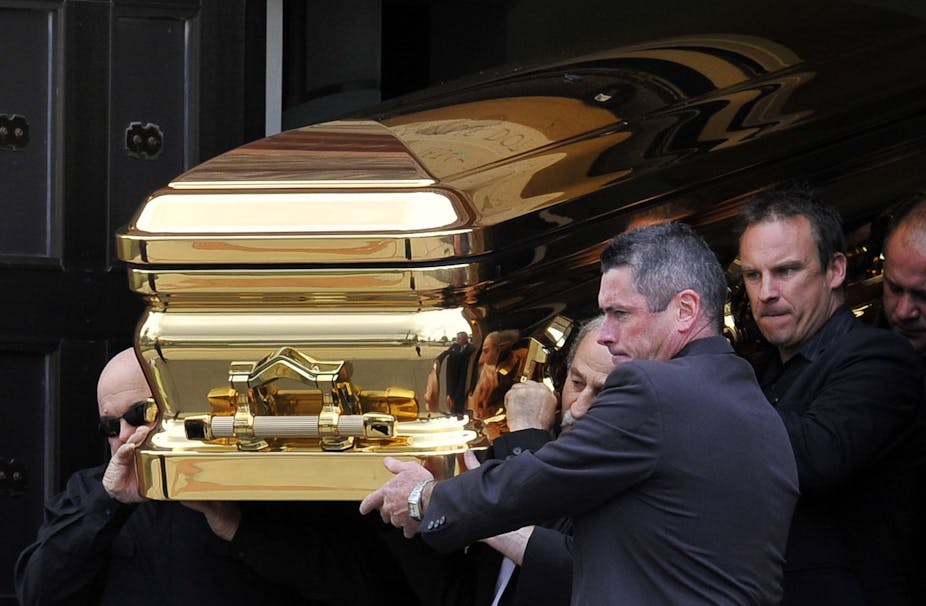Policy making is supposedly influenced by scientific evidence, which in turn leads to better political, social and economic outcomes, depending on the issue at hand. One would like to think that in a moderately progressive Australia, policies are designed to ensure best practice.
If an outcome of a policy keeps on constantly producing substantial negative results, it stands to reason that policy should be revised according to what the evidence suggests.
There is, however, one policy that has led to a continuing disaster decade after decade: the criminalisation of drugs. This issue has, in large part, underpinned the creation of one of Australia’s most popular television series: Underbelly.
Governments over the world have criminalised the production, allocation and consumption of various substances they deem to be dangerous to public health. We are told that drug prohibition is in our best interest.
Only a casual glance at the statistics shows this policy is a fraud. The Australian government’s own data shows that alcohol was to blame for 1,084 deaths in 2003, and tobacco caused 15,511 deaths. All illicit drugs accounted for 1,705 deaths in the same year. Simply put, alcohol and tobacco, the two most popular legal drugs, kill more Australians every year than all other illicit drugs combined by a factor of nearly 10.
Protection of the public health can’t possibly be the justification for drug criminalisation because it simply moves the problem to the black market, which shows no sign of abating – this is the case everywhere. Australians who want drugs will always get them. Protection of public health is simply the pretext for the real reason: a state-sponsored class war against the public.
The wealthy and professionals are not the intended target of drug criminalisation. They can easily afford highly-priced drugs at a somewhat reasonable quality. If caught, their lawyers can get them off with a slap on the wrist.
Instead, prohibition is designed to control the dangerous rabble: the poor and working class. They lack quality legal representation, are the continual targets of the police, comprise the majority of street-level dealers, and directly suffer from violent disputes between cartels.
It is not difficult to see who benefits from current policy. The state can use the “drug scare” card to advance its agenda of further controlling and interfering in our private lives. Private prisons increase revenue and profit, perversely, as a greater number of people are jailed for mostly victimless drug offenses. Lawyers gain substantially as the judicial system is saturated with drug cases.
The economic and social problems generated by the illegal drug trade are significant: monopolistic pricing, dubious production quality, settling arguments with violence rather than lawyers, street crime, abrogation of individual liberties, foregone tax revenue and the establishment of a bureaucratic and costly law enforcement-lawyer-judicial-prison industrial complex.
Drug cartel profits are known to finance illegal prostitution, terrorism, counterfeiting, money laundering, slavery and assassinations (such as those occurring frequently in northern Mexico).
The problems generated by drugs are not inherent to consumption but rather to their prohibited status. Governments know perfectly well how to solve the drug problem: legalisation.
If drugs are considered exceedingly harmful, as the prohibitionists claim, then it stands to reason that the best way to deal with them is to adopt a tax and regulation approach rather than leaving it to the black market.
Drugs can be produced under quality control and sold on the market as with alcohol and tobacco, with the usual advertising and age restrictions. Substantial sin and externality taxes can be levied to discourage consumption and pay for the costs it produces, including drug treatment and needle exchange programs.
Legalisation will inevitably result in the dismantling of the sectors of the pernicious state bureaucracy and parasitical private sector interests previously involved with the drug black market. This will save taxpayers billions. Sales, sin and externatility taxes will likely yield tens of millions of dollars. Street crime associated with the drug trade will cease to exist.
This is not to say that legalised drugs would cause no problems. Clearly, they would. But they would be nowhere near as dangerous to individuals and society as alcohol and tobacco.
Marijuana consumption has yet to result in a single death and ecstasy produces a handful of deaths per year, cocaine and heroin a few more. Interestingly, junk food consumption and lack of exercise is a major factor contributing to early death, yet no politician would ever dare to consider criminalising junk food and imprisoning people for being fat, or forcing them into health camps.
Many medicines are addictive, for instance, oxycodone and methadone, but the government does not carry out a war against the pharmaceutical corporations – they are taxed and regulated.
Criminalisation of drugs abrogates the fundamental principles of free markets, free trade, consumer sovereignty, individual liberties, small government and limited public expenditure – principles considered conservative. Yet it is the right wing that is most in favor of criminalisation that defiles their professed beliefs.
This is not a contradiction. The mainstream right-wing of today is not conservative, but rather, radical statist reactionaries who believe in a powerful and interventionist state to pursue a vicious class war against the public.
Ironically, the government is the best ally of the drug cartels, as the criminalised status of drugs allows the cartels to rake in enormous profits, all the while the government claims to be tough on drugs. Unfortunately, liberal governments have proved to be too spineless to depart from the party line and change policy.
The only way drug policy can be altered is through substantial activism on part of the public who realise that control of the drug market should not be determined by unaccountable cartels, backed by a government that cares only for perpetuating its own power.

